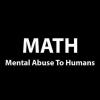I'm looking for a list of topics you should know to have completed the C++ basics.
So, a list of everything a C++ beginner should know in order to have completed the basics.
There is knowing and understanding, and they're two very different things.
You should read about variables, classes, inheritance, and debuggers, but that basically makes you aware of their existence. You know it.
Understanding is about how to use it. You don't get understanding from reading. Write code, do experiments, read code, modify it. Make it stand upside down because it sounds like a fun thing to try.
I'd suggest you do both at the same time. All concepts are related to each other, insight in eg variables in classes will improve understanding of inheritance. They're not independent stand-alone things, it's all connected.









